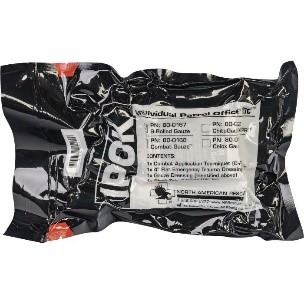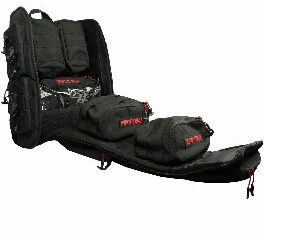
The Washington University Bleeding Control Program helps the community and its first responders prepare for and respond to mass casualty events. Medical oversight is provided by Dr. David Tan, Associate Professor, Emergency Medicine and Emergency Medical Services Section Chief.
Non-Responder Preparedness

WashU Emergency Management supports mass casualty preparedness among its non-responder community through placement of bleeding control supplies across its campuses. These supplies are co-located with automated external defibrillators (AEDs) in stationary cabinets. Each Individual Patrol Officer Kit (IPOK) contains trauma gloves, a tourniquet, gauze and emergency trauma dressing.
Non-responders interested in learning more about the national Stop the Bleed program or associated trainings can learn more on the Barnes-Jewish Hospital Stop the Bleed website or reach out to WashU Emergency Management at WashUReady@wustl.edu
Responder Preparedness
Additionally, the Bleeding Control Program provides a select number of Rescue Task Force Mass Casualty Incident (RTF – MCI) bags for the responder community, which includes Medical School Protective Services, Washington University Police Department and the Washington University Emergency Medical Support Team (Danforth campus only). The MCI bags contain:

- Throw & Go Trauma Individual First Aid Kits (2)
- Bleeding Control Kit
- Airway/Chest Kit
- Hypothermia Kit
- Additional trauma and triage supplies